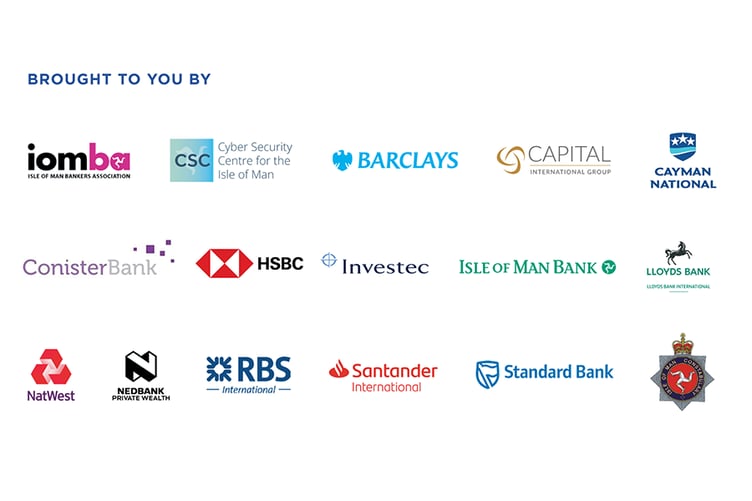Have you ever had a phone call saying you’ve been specially chosen for a cash prize? Or, how about a call from someone claiming to be from your bank saying they’ve spotted suspicious activity on your account and need your full passwords and card details to fix it? Or an SMS/email message about a parcel delivery you were not expecting that has failed? Or maybe you’ve had an SMS message off someone claiming to be a loved one in trouble who needed you to send them money?
The “loved one” might be someone you have not even ever met personally, but they are asking you for money to help them in their (contrived) emergency. THESE ARE SCAMS. I’m sorry to shout, I just don’t want you to get taken advantage of. But, just to reiterate. THESE. ARE. SCAMS.
Your Bank will NEVER, EVER call you and ask you give full passwords or bank details over the phone or to transfer any money to any other account for safekeeping.
In the height of the Black Friday frenzy, scammers are looking to manipulate you into lining their pockets with your hard-earned cash.
The run up to every Christmas sees a huge surge in the amount of people being scammed online and over the phone. With this in mind, the IOM Bankers Association has teamed up with the IOM Constabulary and the IOM Government Cyber Security Centre to try and keep you safe from scammers this festive season.
Here are a few examples of people who have been victims of scams to give you an insight into suspicious circumstances to keep an eye out for:
Scam Victim A clicked on a competition on Facebook and was directed into a private chat.
Once in the chat, the victim was coerced into making payments for what he thought was an investment with a large return. He made several payments, totalling £2000 to a number of beneficiaries with no clear links to the person he was dealing with.
The victim became suspicious, referencing “Fraud” on the payments, but he still incorrectly authorised the payments to be made, which he should not have done given his suspicions. Several of the payments made were paid out successfully and the bank was unable to these retrieve funds.
Although some funds were prevented from leaving the account, the victim still lost £500.
Red Flags: Competitions on social media. This is an easy way for scammers to coax you in and take you down a path that ends in you losing money.
Scam Victim B saw an ad on Facebook to purchase a cat.
This victim entered a conversation over messenger and was coerced into transferring funds to a personal account. The payment for £500 was stopped by the bank system.
The victim then called the Customer Service Centre and attempted to make the payment for £500 over the telephone, this payment was also stopped by the bank system.
The Fraud Team were alerted to these payment attempts and called the victim. After speaking at length with the victim, the bank believed this to be a scam, however, the victim insisted that the payment was made and so it was processed. The payment was returned by the beneficiary bank because they also suspected it was a scam.
The victim advised the seller/scammer in messages that she was unable to complete the transfer, so the scammer advised the victim of another account to send the funds to.
The victim attempted to make a payment to the new account details, however, it was also prevented by the bank system as it was identified as a possible fraudulent account.
The Bank Fraud Team spoke to the victim again, advising that they thought it was highly likely to be a scam and asked if the victim had done any research on a reputable sites to purchase cats.
The victim decided to make no further payment attempts and saved herself from losing £500. The victim continued to be harassed by the Scammer to send funds for a different amount, however, she started to see the red flags and had become correctly suspicious.
Red Flags: Be cautious of adverts to purchase animals on social media. You may be asked to send funds as a deposit to secure the purchase. If the Bank systems prevent a payment because of Fraud suspicions it is likely to be for the right reasons, so be suspicious if the person you are speaking to then engages you in alternatives and methods to circumvent systems put in place to safeguard you and your money.
If a seller starts to get aggravated with you about delays in sending funds this would be a red flag. Also changing where the funds are to be sent or to different Account names or Numbers.
Scam Victim C was tagged in a post on a friend’s profile to purchase Oasis ticket for £400.
The victim was unaware at this point that their friend’s Facebook account had been hacked and taken control of by scammers.
The victim was then contacted by her “friend” in a private chat, in this chat the Scammer asked the victim to send funds to a third party as they were selling the tickets on someone else’s behalf.
The victim made two separate payments, totalling £400, which were processed from their account. Only after making the second payment did the victim have a feeling something wasn’t quite right and contacted her friend via another channel where they confirmed their Facebook profile had been hacked.
The victim lost £400.
Red Flags: There has been much publicity surrounding the purchase of Oasis tickets and the resale, it is advised only to buy tickets from a reputable source.
Scam Victim D received a call from someone purporting to be from his banks fraud team regarding a transaction to a well known UK brand for £1298.
It was not his bank’s fraud team, of course, but a scammer. Whilst talking to the scammer on the call, the victim checked his mobile bank application. He could see the incorrect payment was showing so he declined the transaction, as he was advised by the scammer. The victim was automatically sent a PIN code by his bank to confirm he had declined the transaction, which the scammer encouraged the victim to share enabling the scammer to log onto the victim’s online banking.
The scammer then promptly proceeded to make multiple payments from the accounts losing the victim several thousand pounds.
Red Flags: Banks would never ask for PIN or full password; banks would also never ask clients to download a remote access tool as banks have access to systems to review transactions so there is no need to log remotely to personal devices.
Hopefully these examples can help if you ever get a call or message that doesn’t feel quite right. Even if you’re not 100% sure on the legitimacy of a call or message, do not give out your pin numbers, bank details, or passwords over the phone. It’s better to be safe than sorry.
If you’re a millennial and scared of answering the phone like me then hopefully that will act as a barrier in itself to getting scammed. However, if you’re normal and you do find yourself on the receiving end of something suspicious:
- Hang Up
- Report it to the IOM Constabulary: https://www.iompolice.im/report-it/
- Bask in the glory of not being fooled by a scammer and being an everyday hero for reporting it so someone else doesn’t get targeted.


.jpeg?width=209&height=140&crop=209:145,smart&quality=75)


.jpeg?width=209&height=140&crop=209:145,smart&quality=75)